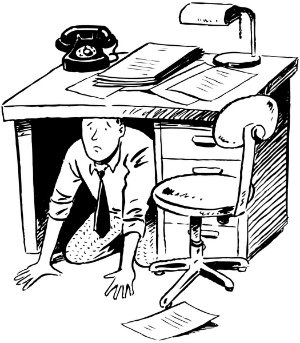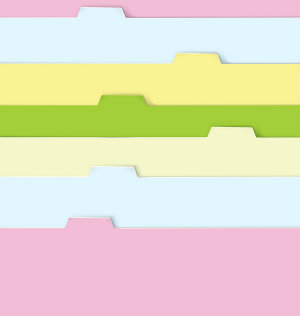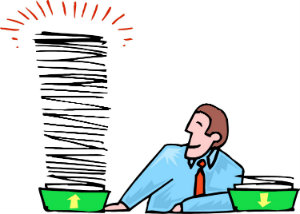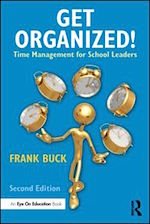Leaders: Avoid the May “Overwhelm” Next Year
What can you do about the mismatch between available days and a seemingly bottomless stack of tasks as the last weeks of school approach? Dr. Frank Buck outlines three options to make the end of school more manageable. They require advance planning…so begin now for 2016!

A principal who helped mentor me described the end of the school year as “…like being on a sled going down a steep, snow-covered hill. Things just get faster and faster and there’s nothing you can do about it. You just try to avoid running into a tree.”
Does that remind you of your first year as a teacher or first year in an administrative position? Somehow we survive, only to repeat the insanity a year later. We forget just how much hits us until it arrives. The end of the school year seems the logical time to bring closure to just about any activity you can name. In the middle grades, every club and organization plans a concert, trip, or some type of gathering to showcase the year’s work. Every teacher envisions something special for his or her classes that will help makes the students’ time in that class memorable.
Administrivia Gone Wild

As the year comes to a close, wouldn’t you actually like to be able to savor it? Everything you have worked on for all year long is now blooming. Students are writing essays you are proud to display. The beginning band, that only a handful of months earlier was struggling with the bleating of Mary’s Little Lamb, is now a joy to hear. Who would have thought they could come so far so fast?
Your homeroom has become a family with friendships being formed which will last for years. The frantic pace of those final weeks often saps the joy from what should be a celebration of a job well done.
It doesn’t all have to be done right now.
Some of what is on our plates could wait until the dust settles. Our fear is that by the time we actually have the time, those good ideas will have been forgotten. We take one of two routes. One is to cram it all in while things are fresh on our minds. The other is to dump the new input altogether. Neither is a good option. Three simple tools allow us to take those worthy tasks and carve a place for them in our future.
The Tickler File

Empty a file drawer in your desk. Grab 31 hanging files and label them with the numbers 1 through 31. Each file represents a day of the month. Label 12 more hanging files with the months of the year. Put the entire collection in the drawer, and your system is ready.
Every time a piece of paper crosses your desk that you will need sometime in the future, drop it in the file for the appropriate day. Nothing is forgotten. Student work is filed for the day you want to return it. Administrivia resurfaces when you want to complete it or submit it. Those good ideas for “when the dust settles” get filed for a day after the final bell sounds, and they magically reappear at that time.
The Digital Task List
The year’s end is full of tasks. Sticky notes adorn computer monitors in an effort to prevent forgetting, yet we still forget. Our head is full of commitments we are sure we will simply remember at the right time, yet we don’t. Those tasks which could be done later compete for our limited attention with those things which much be done now.
Put that smartphone to work by adopting a good digital task manager. I use a free one called “Toodledo.” It’s web-based, so I can get to it from any computer. It has an app for mobile devices, so my list is with me from anywhere. I can even add to it with my voice. As soon as I enter a task, I earn the right to forget about it. By assigning a due date to each task and leaving the list sorted by due date, I know that what I need to be doing now is at the top of the list and what can be saved for later is out of sight.
With my digital task list, all of my choices for what to do with my time are in one place. When I can see all of my choices, I make better choices. I line up my tasks in a logical order and get started on the first one.
The Repeating Task List

Toodledo, or any other good digital task manager, allows you to enter a task and indicate when the task will need to done again. During your first year as a teacher or administrator, those repeating tasks surface on a daily basis. Get really good at recognizing them and trapping them on your list the first time they appear. For the rest of the time you hold that position, your productivity will be greater and your stress level reduced.
End the Insanity / Find the Joy
Those repeating tasks will rarely be “urgent” when they appear. On the contrary, most of what is “urgent” today is because of what was left undone a week or a month ago. Look for those projects which cause the stress in May and see what parts can be handled many weeks before. But be ready—others who don’t plan wind up dumping more to do on your plate at the last minute. Maybe you can share your repeating task system with them.
Master these three tools and watch your productivity go up and your stress level go down:
1. Tickler File
2. Digital Task List
3. Repeating Task List
Mid-May is a terrible time to fix the problems of mid-May. June is a perfect time to lay the plans and implement the procedures that will make next May the perfect end of a perfect year.
Our two greatest problems are gravity and paperwork. We can lick gravity, but sometimes the paperwork is overwhelming.
— Dr. Wernher Von Braun



































